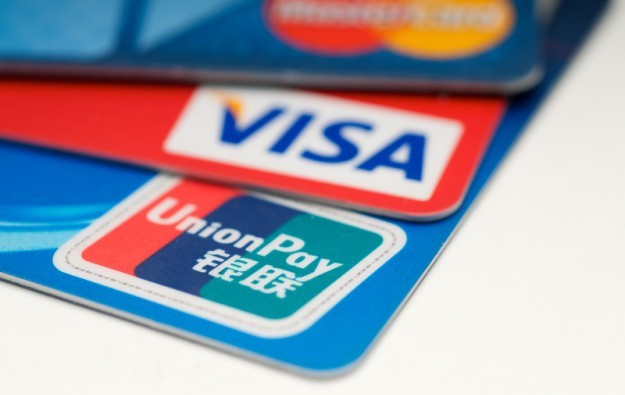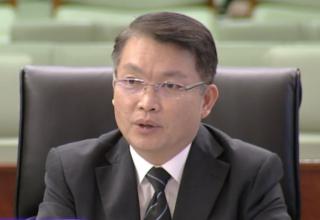UnionPay audit overblown, Macau faces New Normal: analysts
Jan 19, 2015 Newsdesk Latest News, Macau, Top of the deck

A media report that mainland officials are to meet with the Monetary Authority of Macau and bankers in order to start live electronic monitoring of cash transfers made to and from the territory via China UnionPay Co Ltd “may be overblown”, said a note on Monday from Credit Suisse AG in Hong Kong.
A note from Deutsche Bank AG in Hong Kong, also on Monday, said however that the news item on UnionPay – and other developments including the arrest on January 10 of SJM Holdings Ltd senior executive Alan Ho Yau Lun in connection with an alleged prostitution ring at Hotel Lisboa, and the possibility of further tightening of rules on smoking in Macau casinos – suggested that a “new normal” was coming into being in the territory.
Commenting on Mr Ho’s arrest, Karen Tang of Deutsche Bank wrote: “Such a high-profile arrest leads us to think that China wants a ‘New Normal’ for Macau where long-established local practices may be challenged. We think the Macau government may announce new regulatory policies after the Chief Executive’s visit to Beijing during the National People’s Congress in March 2015.”
She noted that Macau’s Secretary for Social Affairs and Culture, Alexis Tam Chon Weng, had hinted the territory’s government might announce in March changes to complement the widened ban on smoking on mass-market floors instituted in October last year. “[A] Smoking ban in VIP rooms may be another regulatory risk,” Ms Tang added.
Credit Suisse analysts Kenneth Fong and Isis Wong said in their note on the UnionPay issue that money moving to and from Macau was already being monitored.
They wrote: “UnionPay is a form of China debit card. As such, all the UnionPay transactions should already be recorded in both China (the issuing banks) and Macau banks (settlement banks). We believe that if the China authority wants to monitor suspicious transactions … they should have all the information in the Chinese banks who are the card issuers. They don’t need to involve the Macau Monetary Authority as stated in the news article,” wrote Mr Fong and Ms Wong.
The Sunday Morning Post newspaper last Sunday said Ministry of Public Security officials from the mainland were to meet Macau regulators and bankers to spell out details of a monitoring system to track illicit cash. The media outlet linked the move to mainland China’s ongoing anti-corruption campaign.
But Credit Suisse said in its note: “We think the news may be overblown.”
The bank said mainland China was already monitoring transactions as part of the Chinese banking system’s anti-money laundering procedures.
“In fact, we heard several cases [where]…the players’ China bank accounts got frozen for having consistent and big transactions in Macau. So, these monitoring measures already exist and are not new.”
Credit Suisse added: “Up till now, the UnionPay shops still widely exist in Macau and our recent channel check with the operators sees no change in operation. And the only change is the government has stepped up measures towards illegal [card payment] machines which should not have existed in Macau in the first place…”
The bank said that further clamping down on UnionPay transactions in Macau was unlikely to aid mainland China’s policy aim of catching so-called ‘tigers’ – senior officials or high profile businesspeople suspected of corruption – and not only the ‘flies’, the lower-level wrongdoers.
Mr Fong and Ms Wong stated this was because using UnionPay for cross border money transfers was “very expensive (3 to 5 percent of transacted amount), time consuming (the amount per day per card is limited and monitored), inconvenient (the money you get in Macau will be in physical cash notes)”.
They added: “In fact, the VIP players use junket credit to play and only the small and very low-end VIP player use UnionPay to obtain cash. So, going after UnionPay transactions logically won’t capture the ‘tigers’.”
Ms Tang of Deutsche Bank, estimated in her note that UnionPay transactions accounted for “30-40 percent of premium mass, and 10-15 percent of VIP revenue.”
Related articles
-
 SJM only Macau op with 3Q share, GGR...
SJM only Macau op with 3Q share, GGR...Nov 15, 2024
-
 Macau police send 42 FX suspects to...
Macau police send 42 FX suspects to...Oct 24, 2024
More news
-
 GKL provides its new table game...
GKL provides its new table game...Nov 22, 2024
-
 The Baron Upright, a new cabinet from...
The Baron Upright, a new cabinet from...Nov 22, 2024
Latest News
Nov 22, 2024
Casino operator Grand Korea Leisure Co Ltd (GKL) says it has achieved its first commercialisation of a new-to-market table game, developed via an in-house competition dating to 2021. Grand Korea...Sign up to our FREE Newsletter
 (Click here for more)
(Click here for more)
Pick of the Day
”As we navigate the final steps of the licensing process, we remain confident in our ability to align with Brazil’s regulatory requirements”
Eusebio Tanco
Chairman of DigiPlus Interactive
Most Popular
 Macau to get 36mln visitors in 2025: Secretary Lei November 21, 2024
Macau to get 36mln visitors in 2025: Secretary Lei November 21, 2024  Gaming technology firm IGT reports hacking incident November 21, 2024
Gaming technology firm IGT reports hacking incident November 21, 2024  EBITDA a focus in Macau market share battle: Jefferies November 21, 2024
EBITDA a focus in Macau market share battle: Jefferies November 21, 2024  Macau 2025 GGR could top US$30bln govt forecast: Citi November 20, 2024
Macau 2025 GGR could top US$30bln govt forecast: Citi November 20, 2024  Future of gaming is the online format: Pagcor chairman November 20, 2024
Future of gaming is the online format: Pagcor chairman November 20, 2024









